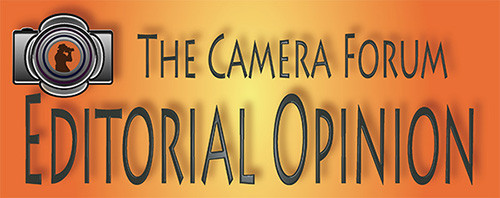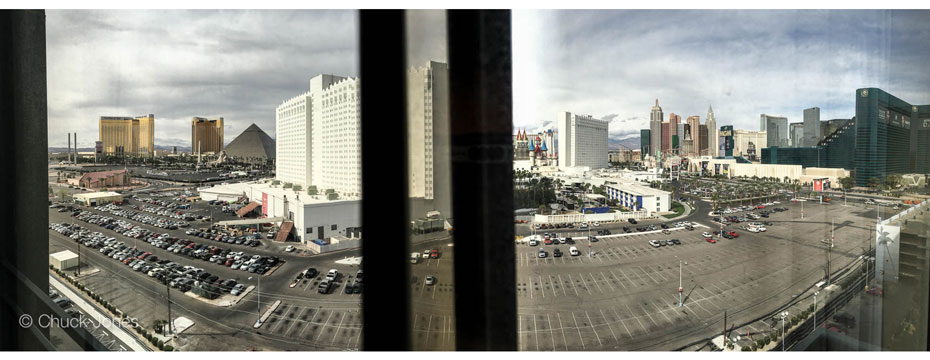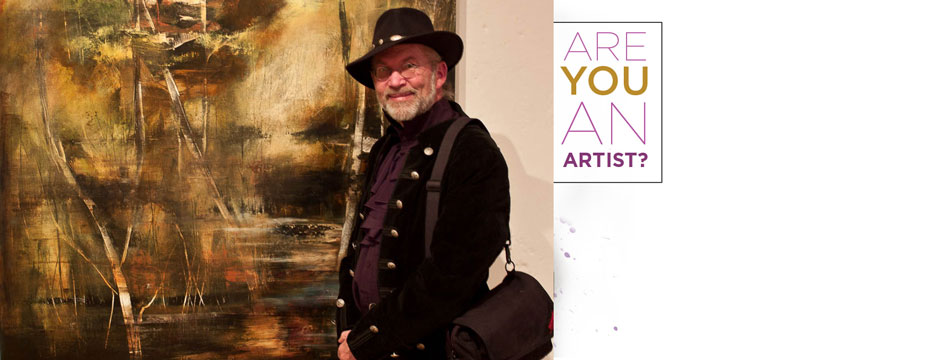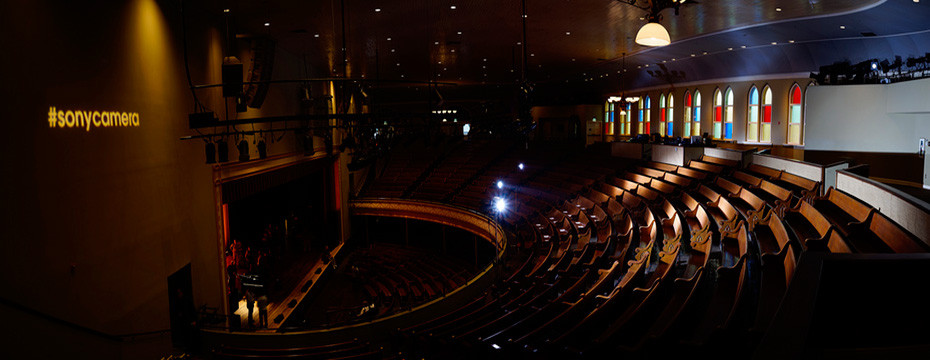
Professionalism In Photography
EDITORS REPLY: It seems that I have inadvertently offended somebody I had no intention to offend. I apologize and beg forgiveness. Since my inadvertent error has lead to most of you now reading this, I will place my open response to him here as well as in a more personal communication to Mr. Thein in Asia.
Dear Mr. Thein,
Sir, I am in receipt of your email of this morning.
“From: Ming Thein
Subject: *Your* unprofessionalism
Message Body:
The least you could do if you’re going to plagiarise an entire article piecemeal – ironically on professionalism, of which you’ve just demonstrated you have none whatsoever – is spell my name correctly!
—
This mail is sent via contact form on The Camera Forum™ https://thecameraforum.com”
On the matter of journalistic integrity, I will apologize though question a direct reblog with full attribution and a direct link to your original work published as it was under my banner EDITORIAL OPINION as being plagiarism. Sir I had no intention what so ever of stealing anything from you which is why I placed your by-line and a link to your web-site under my preface. My intent was to take up your banner and act as amplifier for your thoughts so eloquently written. I can assure you it was an act of respect Sir, not of theft. If it has offended you I do apologize, and will be happy to take this entire page down if you request me to.
On the matter of the misspelling of your name, though as Editor it is my responsibility to insure spelling errors are corrected, sadly I work on a Mac. My spelling checker automatically corrected the “I” before “E” except after “C” English language rule error IT made in understanding correctly how to spell correctly your incorrectly spelled last name – in its judgement, not in mine! Please forward that complaint to whoever at Apple is now in charge, as they make those rules, I am just forced to live with them as are we all.
Ming, I consider myself a new friend and supporter of your message, and I hope that is your choice as well. But I am certainly not your enemy and never was.
Warmest Regards,
Chuck Jones
=================== Original Story Appears Below ===============================
Not a lot of people alive today can remember back as far as I can, back to when there was mostly real professionalism in photography. Not bragging, I’m just lucky enough to have been alive longer than some. Over the years I’ve lived through many changes. Too many market shifts, economic cycles, recessions, and periods of growth to go into here. But the latest change in the level of professionalism in photography hurts me to see. I see many of my Professional Photographer friends finding it tougher and tougher to find work of the kind they have done their whole career, and still make enough money at it to feed, house, and raise their families.
This is not due to a shift in marketplace demand as much as it is a shift to massive available supply. Eric Schmitt could have been talking about the level of professionalism in photography two years ago when he stated, “Every two days now we create as much information as we did from the dawn of civilization up until 2003,” according to Schmidt. “That’s something like five exabytes of data,” he says.
Let me repeat that: we create as much information in two days now as we did from the dawn of man through 2003. Wow. No wonder I find it hard to keep up with it all!
“The real issue is user-generated content,” Schmidt went on to say. He noted that pictures, instant messages, and tweets all add to this. Naturally, all of this information helps Google. However Schmidt cautioned that just because companies like his can do all sorts of things slicing and dicing this information, the more pressing question now is if they should. Schmidt noted that while technology is neutral, he doesn’t believe people are ready for what’s coming. “I spend most of my time assuming the world is not ready for the technology revolution that will be happening to them soon,” Schmidt said. Schmidt said this in August of 2010. Three years later, the disruption is upon us all.
The photography marketplace has changed, many of the customers gone to another less expensive route, and in large numbers. This taking place as the growth in Photography as a popular hobby has exploded. Everybody can now be a Professional Photographer. Or can they? And what is the solution to get back more professionalism in photography? I think Ming Thein sums up the situation perfectly in this reblog from MingThein.Com.
Professionalism In Photography
OCTOBER 25, 2013 BY MING THEIN

Photographers at work; from the Ming Thein NYC 2013 workshop.
One commonly asked (and commonly mis-answered) question on the internet these days is around the definition of what constitutes a ‘professional photographer’. The usual definition is that it is somebody who is shooting for pay, and deriving the majority of his of the income entirely from photography for photography related activities. I suppose in the strictest sense of the definition, that is true. However, it says nothing about professional conduct or skill. What I’m going to attempt to do in this article is express my own views on what I believe constitutes professional behavior in photography. It is important to note however that this is a very much personal, though shared by many of my colleagues in all areas of the industry – both primary providers of photographic imaging, as well as supporting services and videography/ cinematography.
I think as with all things a large amount of the confusion stems from education, or more specifically, the lack of it. If standards are not clear to photographers themselves, it becomes very difficult for the general public to have any idea of what to expect when engaging or working with a photographer. Professions are trades or crafts that have enforced standards, regulatory bodies, certification requirements and generally some sort of formal training or apprenticeship before one is able to practice independently. Medicine, accounting, law, architecture, surveying etc. are all good examples of this; each of these professions has one or two major internationally-recognized accreditation bodies that uphold standards, ensure members comply to minimum requirements, and more importantly, educate the public/ clients about what they should expect. It’s a good thing for both service providers and service consumers; by maintaining standards, it is easier to maintain pricing and margins as well as build consumer confidence and trust. There is commercial benefit for all parties in a transaction for them to go with an accredited professional.
Unfortunately, the photographic industry has very few, if any such accreditation bodies. Even worse, they are not widely recognized by the general public. This in turn means that most photographers do not bother with certification; the increased costs and requirements do not immediately translate into increased revenue, customers, or profitability*. There are some exceptions to this – the MPA, Royal Photographic Society, NAPP, NPS, CPS etc. for instance – but even that tends to be rather fragmented with mixed standards and not that much general consumer awareness. Perhaps part of the problem is that because the nature of our work is so subjective in the first place, it becomes difficult to apply quality control standards to the output itself. This is obviously not the same for say, accounting.
*I freely admit to being one of these people.
The next level down from that are agency or brand associations; the public perceives acceptance to these groups as a stamp of quality (or minimum quality). Generally this is reasonable, but once again: just because a photographer does excellent portraits for Agency X, it doesn’t mean that his/her – or that agency’s – standards for portraiture also apply to architecture, or food, or product. Perhaps a better solution to this problem is not to look at the quality of output, but the conduct of the service provider. I firmly believe that regardless of industry or occupation, there are some minimum standards required of all people who are offering a service; there is a level of trust and commitment given to you by your client on the basis of belief that you will deliver as promised, and it is your duty to ensure that you deliver on that promise. It’s not difficult to see that this pays itself back in future work and creative latitude.
In short, we as professional – billing – photographers need to ensure the following:
- We deliver on time and to spec as promised and uphold our agreements; if we can’t, we say so in advance, and we try to mutually work towards a solution
- We do our best and do not accept compromise unless there is no other choice; we inform our clients so there are no misunderstandings
- We will also do our best to try and work to your needs; for whatever reason, what you think you need may not be the same as what you actually need
- We will deliver at a self-consistent (or improving) level of quality regardless of external circumstances that may affect us personally
- It is better to under-promise and over-deliver
- We uphold basic standards of courtesy; this includes timeliness and professionalism of replies whether in person, on the phone or via email
- We will respect your time
- We will respect our subjects – whether this be treating models/ talent with courtesy and friendliness or carefully handling product and props
- We will have integrity and are fully transparent in our pricing and honour quotes even if we get things wrong; if there are big variances or changes in scope, then we communicate this and reason with the client
- The scope and deliverables of all assignments are clearly detailed
- We do our part to educate clients where necessary; whether this be to do with technical or creative choices, licensing or otherwise
- We respect the creative rights of other photographers and clients, so that they shall respect our own
- We value our own work and do not fight each other on price alone (This is very bad for the industry long term; once a new price ‘low’ is established, there’s no going back. You certainly can’t work for free, and if inflation means costs of everything are rising, how can we sustainably charge less?)
- If failure to deliver is our fault, we rectify it at our cost
- We have spares and backups
This goes both ways, though: in order for us to deliver, we need some things from our clients:
- We can make contingency plans for most eventualities, but there will always be things that our outside our control (e.g. weather)
- Respect the agreed scope and price – you would not do extra work for free, please do not expect us to. When it no longer makes financial sense there will not be any more photographers
- Please respect our time and experience; that is why you hired us in the first place
- Please uphold your end of commitments – whether that be supplying product of a certain finishing level or quality to photograph, or delivery on a certain time and date
- ‘Fixing it later in Photoshop’ is not acceptable: this compromises quality and integrity
- Please pay on time; we are running small businesses and do not enjoy the same credit terms as larger businesses. It is impossible for us to serve as credit facilities
I know I do my best with the photographers’ side of the charter, and there are a lot of others who do likewise. There are a lot of amateurs who do better than paid pros! Most clients also honour their end of the deal, and when they don’t, it’s often because they’re not aware of it – some education usually fixes the problem. The troubling thing is that anecdotally, and from the way new clients approach engagement of a photographer, it’s clear that the vast majority of photographers are not observing any of these standards. In turn, the expectations are lower, trust is not there, and the overall lack of confidence in the industry from the client-side translates into lower value all around. It’s not a few bad apples spoiling the barrel, but most of the barrel being shortsighted and not seeing that their behaviour is affecting the industry – and of course themselves – in the long run. Some of the worst (verified stories) I’ve heard include:
- Photographers not turning up for time-critical engagements, or missing critical bits of equipment (flashes, batteries etc.)
- Photographers over-committing and being unable to deliver
- Photographers being slow or rude to reply email
- Famous photographers attempting to sell clients multi-level marketing schemes (!)
- Famous photographers not even turning up to engagements and sending their apprentices instead (!)
- A photographer dropping a six figure watch, breaking it, and blaming it on somebody else (!)
I think you can see why we have a bit of a crisis in the industry. It doesn’t help either that a lot of the practicing photographers have no work experience outside this; it means that they have no idea what’s to be expected in a normal professional workplace. All we can do is ensure that we do our best to adhere to our code of ethics, and make an effort to educate those who are not where possible. In the long run, it’s in everybody’s best interests. MT
Please Rate This Story! [ratings]







